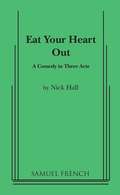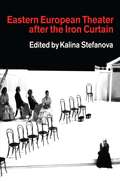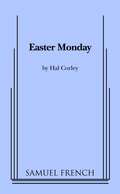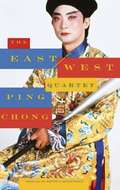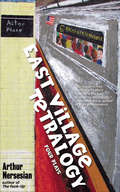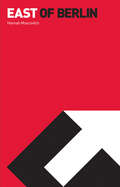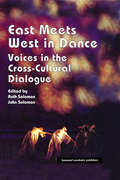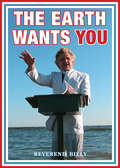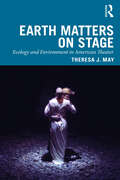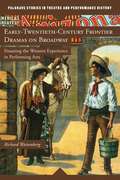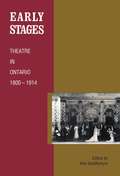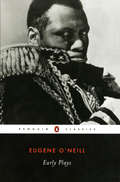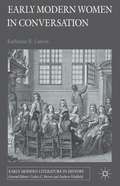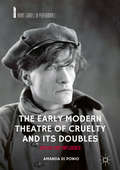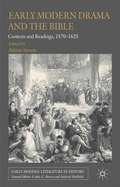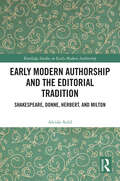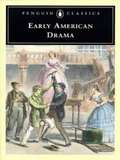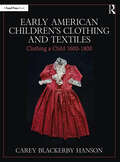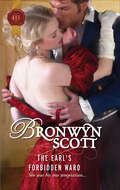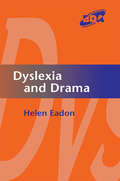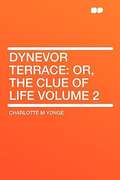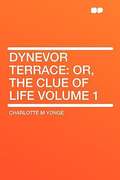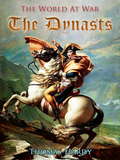- Table View
- List View
Eat Your Heart Out
by Nick HallComedy / 3m, 2f / Charlie's an out of work actor currently working as a waiter. The scene is a series of hilarious encounters in Manhattan restaurants both elegant and shabby. By changing the tablecloths in the course of the action, the basic setting of three tables and six chairs becomes another place. The action's uninterrupted and the comedy never stops. The other performers play several parts; the girl desperately trying to eat snails and oysters to please her fiance, the middle aged lovers so intent on each other they cannot order dinner; the rich, embittered astrologer; the timid man who never gets a waiter; the agents, directors, actors, and waiters. An amusing gallery of characters whose stories intertwine and finally involve Charlie.
Eastern European Theatre After the Iron Curtain (Contemporary Theatre Studies #Vol. 30)
by Kalina Stefanova Ann WaughAn important new survey of Eastern European theater after the collapse of the Soviet Union. Explores all aspects of theater, from playwriting, directing and acting, to repertoire creation and theatre management. Uses material never previously published on theatre life during the Communist years. Compares theater before and after the political changes in Albania, Bulgaria, Czech Republic, Hungary, Latvia, Lithuania, Moldova, Poland,Romania, Russia, Slovakia, Ukraine. Chapters begin with introductions by well-known theatre professionals or lively interviews with a major directors or playwrights - including Yury Lyubimov, Václav Havel, Andrei Sherban and Ismail Kadare.
Easter Monday
by Hal CorleyDramatic Comedy / 2m, 1f / Interior An eccentric widower, Mack has been a stay-at-home dad for twenty years, his daily existence revolving around his son Billy. Not only can't he let go, Mack's convinced he's more needed than ever. First up is pulling Billy from a dead-end copy shop job and enrollment in culinary school-after all, he was a finalist in the Pillsbury Bake-off. Then Mack discovers that Billy, adopted from infancy, has contacted his birthmother, a Washington, DC secretary about to make a first trip to New York City. Panicky Mack spends a sleepless three days coaching his son, determined to impress Adela with Billy's upbringing-and their indestructible father-son bond. Over a snowy Easter weekend, these three square off. Confronting timid Adela, Billy's romanticized ideas about his identity are turned inside out, as Mack's deepest insecurities surface. Mack is convinced the woman will psychologically lay claim to the child she gave up two decades earlier. Yet for Adela, a lasting reconnection with the boy couldn't be further from her mind. With abundant humor, Easter Monday addresses what it means to be a parent, and to be parented, illuminating both the pain and joy in finally saying goodbye to childhood. "....An interesting examination of an unusual father-son relationship... The Sondheim lyrics 'stay a child while you can be a child' are embodied in Mack, the overprotective father. In his eagerness to keep his adopted son Billy with him, Mack has in essence tried to keep him a child. He creates a wonderful world of nostalgia that is very moving... Easter Monday holds our interest, and Corley has written some beautifully evocative lines ... " -Connie Meng, NPR Radio Character Descriptions: MACK: 55-ish; a radically sentimental, unapologetic Pollyanna; unselfconscious, devoid of vanity, he's alternately tender, prickly, impatient, cuddly, bullying, at times fiercely defensive and aggressively paternal. BILLY: Mack's son, 20; attractively boyish, yet preternaturally world-weary; gentle, introspective and cautious, he has developed a short fuse, and though desperate to avoid confrontation, he can turn combative. ADELA: Billy's birthmother; 35; unprepossessing, plain-spoken and intensely focused on whatever meager task is at hand; though decidedly meek, she's capable of standing up for the truth - and herself. Please contact Samuel French, Inc. (www.samuelfrench.com) for performance licensing inquiries.
The East/West Quartet
by Jessica Hagedorn Ping ChongFor nearly three decades, Ping Chong and his company have written and staged some of the most innovative and arresting examinations of "the Other" on stages in the U.S., Europe, and Asia. His work more than any other artist has explored the ways Asian cultures have intersected with contemporary American society and throughout history.This volume collects four of his masterworks created over the past decade, including:Deshima (1990), a documentary collage of the history of the West and Japan;Chinoiserie (1995), spans centuries, continents and cultures, where the mysterious East meets the mysterious West;After Sorrow (1997), explores the legacy of war in Vietnam;Pojagi (1999), a poetic documentary on Korea from the sixteenth century to today.The Washington Post has said these works are "like poems in their simplicity and power to evoke . . . -carefully wrought and beautifully designed."As an artist , I'm an outsider in American society. As an experimental artist, I'm an outsider in the art world. As a person of color, I'm an outsider; as an immigrant, I'm an outsider; as a gay man, I'm an outsider. It's the position that fate has allotted me, but it's a valuable postion to be in, because I think every society should have a mirror held to it by the outsider."--Ping Chong, 1999Ping Chong was born in 1946 and raised in the Chinatown section of New York City. He began his theatrical career with Meredith Monk and later founded his own company in 1975, which later became Ping Chong and Company. It was created to explore the meaning of contemporary theatre and art on a national and international level. He has created over fifty major works for the stage, including Humboldt's Current, Nosferatu, Kind Ness, and Undesirable Elements. His works have received numerous Obie and Bessie Awards and are performed throughout the world.
East Village Tetralogy: Four Plays
by Arthur Nersesian"Nersesian is this generation's Mark Twain and the East River is his Mississippi."--Jennifer Belle, author of High Maintenance"Award-winning playwright Arthur Nersesian has woven an effective dramatic form through four plays, each quite funny in its own way. Each yields very powerful human results while subtly investigating the major social issues of our time."--Evangelina Borges, Trying Time PressNersesian's cult status has grown from the success of his novels, and here for the first time his equal skills as a playwright are revealed to a hungry public. Three of the four plays in East Village Tetralogy have been staged off-Broadway in New York City. The four plays included in this volume are: Rent Control East Village Writer's Bloc Plea Bargains Spare Change
East of Berlin
by Hannah MoscovitchStanding outside his father's study in Paraguay, Rudi is smoking cigarettes, trying to work up the courage to go in. It has been seven years since he stood in that same spot; seven years since he left his family and their history behind him. As a teenager, Rudi discovered that his father was a doctor at Auschwitz. Trying to reconcile his inherited guilt, Rudi lashed out against his family and his friends, and eventually fled to Germany. While there, he follows in his father's footsteps by studying medicine, and falls in love with Sarah, the daughter of a Holocaust survivor. Questioning redemption, love, guilt, and the sins of the father, East of Berlin is a tour de force that follows Rudi's emotional upheaval as he comes to terms with a frightening past that was never his own.
East Meets West in Dance: Voices in the Cross-Cultural Dialogue (Choreography and Dance Studies Series #Vol. 9)
by Ruth Solomon John SolomonFirst Published in 1995. Routledge is an imprint of Taylor & Francis, an informa company.
The Earth Wants YOU
by Reverend Billy Talen"You must check out the newest from my favorite transcendent and down to earth preacher."--Laurie Anderson, artist, musicianThe Earth Wants YOU is a motivational handbook, filled with inspired visions of a wild, creative, Earth-led cultural revolution. Reverend Billy and the Church of Stop Shopping offer up a heady mix of humor, insightful critique, passionate commitment, emotional catharsis, and example after example of vibrant direct action. Stop shopping and feel the love as you sign up for the struggle of our lives! Earthalujah!Praise for The Earth Wants YOU:"Singing instructions for joining the Earthalujah choir!"--Jodie Evans, CODEPINK"My Earthmojis are smiling for Reverend Billy! And that's all the dirt you're gonna get from me. O;"--Justin Vivian Bond, trans-genre artist, Radical Faerie"Mama Earth will shake us ALL off unless we shake shit UP and shut it DOWN!"--Bertha Lewis, The Black Institute"This is what makes social movements succeed--it's the big love-slog we have to go through to achieve change."--Andy Bichlbaum, The Yes Men"Join Rev and his merry band of activists as they imagine ways of arousing concern for the environment and racial justice."--Coco Fusco, creator of Eu Sou Um Consumidor"When the singing activists hit the high notes in a bank lobby or a DARPA lab or the back aisle of a Walmart, they wipe away the veils hiding the madness of our corporate-controlled, consumer-crazed society."--Annie Leonard, director of Greenpeace USA"Ssssh, listen . . . let the Church of Stop Shopping exorcise your fear, doubt and burnout, and join the Earthalujah Revolution!"-Jess Worth, BP or not BP?"This call to action is at once sobering and encouraging. We have fucked up really badly, but the ability to see it-is the first and hardest step toward fixing it."--Douglas Rushkoff, author of Throwing Rocks at the Google Bus"Reverend Billy's ALL IN! bodies and voices . . . not just clicks and posts, for this small village we call Earth. Preach On!"--Obang Metho, Solidarity Movement for a New Ethiopia"The Stop Shoppers packs a whoop."--Roberto Sifuentes, La Pocha Nostra"In between satire and silence, there is a space of penetrating reckoning for all vibrations that flow counter to the balance of Nature. And from this dynamic and tricky space, the Honorable Reverend and his Holified Choir will shout, sing and sermonize a soul-bound love message of Truthalujah!"--John Sims, The AfroDixie Remixes"The Church of Stop Shopping is in the vanguard of a new movement that challenges this consumer society that is killing our planet."--Mike Roselle, Climate Ground Zero and Coal River Mountain Watch"Billy, Savi and the choir have love and optimistic humor, and they don't give up on people."--David LaChapelle, comedian"He seems to be writing while his actions are going on, like he can write while he's hand-cuffed."--Benny Zable, The Nimbin Environment Centre, NSW Australia"The Earth Wants You takes readers deep inside the heart, mind and balls of the activist-artist. Reverend Billy rocks hard!"--Annie Sprinkle, artist, ecosexual sexecologist"He was a comic act. Now he's evolved into a man compulsively challenging the true extent of the right to protest."--Anohni, creator of the song "4 Degrees"Reverend Billy and his choir of singing-activists are on the front lines of creative direct action, and here they offer up a distillation of the passion, the inspiration, and the hopes for love and survival that fuel their work. In a mix of essays, polemics, surrealist scenarios and news flashes from the frontlines, Reverend Billy answers the question, "What are we to do?" with a resounding chorus of "Take Action NOW!"
Earth Matters on Stage: Ecology and Environment in American Theater (Routledge Studies in Theatre, Ecology, and Performance)
by Theresa J. MayEarth Matters on Stage: Ecology and Environment in American Theater tells the story of how American theater has shaped popular understandings of the environment throughout the twentieth century as it argues for theater’s potential power in the age of climate change. Using cultural and environmental history, seven chapters interrogate key moments in American theater and American environmentalism over the course of the twentieth century in the United States. It focuses, in particular, on how drama has represented environmental injustice and how inequality has become part of the American environmental landscape. As the first book-length ecocritical study of American theater, Earth Matters examines both familiar dramas and lesser-known grassroots plays in an effort to show that theater can be a powerful force for social change from frontier drama of the late nineteenth century to the eco-theater movement. This book argues that theater has always and already been part of the history of environmental ideas and action in the United States. Earth Matters also maps the rise of an ecocritical thought and eco-theater practice – what the author calls ecodramaturgy – showing how theater has informed environmental perceptions and policies. Through key plays and productions, it identifies strategies for artists who want their work to contribute to cultural transformation in the face of climate change.
Early-Twentieth-Century Frontier Dramas on Broadway
by Richard WattenbergFrontier dramas were among the most popular and successful of early-twentieth-century Broadway type plays. The long runs of contemporary dramas not only indicate the popularity of these plays but also tell us that these plays offered views about the frontier that original audiences could and did embrace.
Early Stages: Theatre in Ontario 1800 - 1914 (The Royal Society of Canada Special Publications)
by Anne SaddlemyerA circus, a production of Shakespeare, an evening of song and ventriloquism, a performance by a ‘learned pig’ – all of these offered an evening’s entertainment to the citizens of early nineteenth-century Upper Canada. Although the population in 1800 was only 90,000, a wide range of entertainers performed in towns across the province: touring companies, variety and animal acts, and theatrical troupes, professional and amateur, some home-grown and based in the garrisons, others from Montreal, New York, and London. By the end of the century, some 250 touring groups were on the road across Ontario, from Ottawa to Rat Portage (now Kenora). The lively theatre tradition of that century would extend into the next, beyond the appointment in 1913 of Ontario’s first official censor, until the outbreak the following year of the First World War. This collection of essays covers a number of facets of the growth of theatre in Ontario. Ann Saddlemyer’s introduction provides an overview of the period, and historian J.M.S. Careless focuses on the cultural environment. Novelist Robertson Davies writes on the dramatic repertoire of the period. Architect Robert Fairfield explores the structures that housed performances, from the small community halls to the grand opera houses. Theatre scholar and professional actor and director Geralrd Lenton-Young discusses variety performances. Leslie O’Dell, scholar, actor, and playwright, writes on garrison theatre, while Mary M. Brown, a teacher, actress, and director, covers travelling troupes. A chronology and bibliography, both by the theatre scholar Richard Plant, complete the work. A second volume, scheduled for future publication, will look at the development of theatre in Ontario in the twentieth century. (Ontario Historical Studies Series)
Early Plays
by Eugene O'Neill Jeffrey H. RichardsThis volume brings to readers a selection of Eugene O'Neill's early work, written between 1914 and 1921 and produced for the stage between 1916 and 1922. Included here are: seven one-act plays, The Moon of the Caribbees, Bound East for Cardiff, In the Zone, The Long Voyage Home, Ile, Where the Cross Is Made, and The Rope; and five full-length plays, Beyond the Horizon, The Straw, Anna Christie, and the classics The Emperor Jones and The Hairy Ape. The majority of the plays are heavily influenced by German expressionism-Freud, Nietzsche, Strindberg, and the radical leftist politics in which O'Neill was involved during his youth. Included in this unique collection is the little known and highly autobiographical play, The Straw, which draws on O'Neill's confinement in the Gaylord Farm Sanatorium.
Early Modern Women in Conversation
by Katherine R. LarsonTo converse is, in its most fundamental sense, to engage with society. The potency of conversation as an early modern social networking tool is complicated, however, both by its gendered status in the period and by its conflation of verbal and physical interaction. Conversation was an embodied act that signified social intimacy, cohabitation, and even sexual intercourse. As such, conversation posed a particular challenge for women, whose virtuous reputation was contingent on sexual and verbal self-control. Early Modern Women in Conversation considers how five women writers from the prominent Sidney and Cavendish families negotiated the gendered interrelationship between conversation and the spatial boundaries delimiting conversational encounters to create opportunities for authoritative and socially transformative utterance within their texts. Conversation emerges in this book as a powerful rhetorical and creative practice that remaps women's relationship to space and language inearly modern England.
The Early Modern Theatre of Cruelty and its Doubles: Artaud and Influence (Avant-Gardes in Performance)
by Amanda Di PonioThis book examines the influence of the early modern period on Antonin Artaud’s seminal work The Theatre and Its Double, arguing that Elizabethan and Jacobean drama and their early modern context are an integral part of the Theatre of Cruelty and essential to its very understanding. The chapters draw links between the early modern theatrical obsession with plague and regeneration, and how it is mirrored in Artaud’s concept of cruelty in the theatre. As a discussion of the influence of Shakespeare and his contemporaries on Artaud, and the reciprocal influence of Artaud on contemporary interpretations of early modern drama, this book is an original addition to both the fields of early modern theatre studies and modern drama.
Early Modern Playhouse Manuscripts and the Editing of Shakespeare
by Paul WerstineEarly Modern Playhouse Manuscripts and the Editing of Shakespeare argues for editing Shakespeare's plays in a new way, without pretending to distinguish authorial from theatrical versions. Drawing on the work of the influential scholars A. W. Pollard and W. W. Greg, Werstine tackles the difficult issues surrounding 'foul papers' and 'promptbooks' to redefine these fundamental categories of current Shakespeare editing. In an extensive and detailed analysis, this book offers insight into the methods of theatrical personnel and a reconstruction of backstage practices in playhouses of Shakespeare's time. The book also includes a detailed analysis of nineteen manuscripts and three quartos marked up for performance - documents that together provide precious insight into how plays were put into production. Using these surviving manuscripts as a framework, Werstine goes on to explore editorial choices about what to give today's readers as 'Shakespeare'.
Early Modern Drama and the Bible
by Adrian StreeteEarly modern drama is steeped in biblical language, imagery and stories. This collection of essays examines the extensive and pervasive presence of scripture on the early modern stage and considers a range of plays by writers such as Shakespeare, Marlowe, Middleton, Webster, Massinger and Heywood. The introduction situates the religious, political and ideological contexts within which the relationship between stage and book was negotiated. The individual essays then explore a variety of dramatic encounters with scripture, ranging from material and verbal presences, iconoclasm, political theology, the Bible and the law, the domestic, the religious and political controversy. In this way, the capacious and widespread dramatic engagement with the early modern Bible is reconsidered. These essays offer fresh and exciting readings of early modern drama by resituating the theatre as a site of public and communal engagement with, and interrogation of, scripture.
Early Modern Drama, 1576-1642
by Julie SandersEngaging and stimulating, this Introduction provides a fresh vista of the early modern theatrical landscape. Chapters are arranged according to key genres (tragedy, revenge, satire, history play, pastoral and city comedy), punctuated by a series of focused case studies on topics ranging from repertoire to performance style, political events to the physical body of the actor, and from plays in print to the space of the playhouse. Julie Sanders encourages readers to engage with particular dramatic moments, such as opening scenes, skulls on stage or the conventions of disguise, and to apply the materials and methods contained in the book in inventive ways. A timeline and frequent cross-references provide continuity. Always alert to the possibilities of performance, Sanders reveals the remarkable story of early modern drama not through individual writers, but through repertoires and company practices, helping to relocate and re-imagine canonical plays and playwrights.
Early Modern Authorship and the Editorial Tradition: Shakespeare, Donne, Herbert, and Milton (Routledge Studies in Early Modern Authorship)
by Aleida AuldThis volume adds a new dimension to authorship studies by linking the editorial tradition to the transformative reception of early modern authors and their works across time. Aleida Auld argues that the editorial tradition provides privileged access to the reception of early modern literature, informing our understanding of certain reconfigurations and sometimes helping to produce them between their time and our own. At stake are reconfigurations of oeuvre and authorship, the relationship between the author and work, the relationship between authors, and the author’s own role in establishing an editorial tradition. Ultimately, this study recognizes that the editorial tradition is a stabilizing force while asserting that it may also be a source of strange and provocative reconceptions of early modern authors and their works in the present day. Scholars and students of early modern literature will benefit from this approach to editing as a form of reception that encompasses all the editorial decisions that are necessary to ‘put forth’ a text.
Early American Drama
by Various Jeffrey H. RichardsThis unique volume includes eight early dramas that mirror American literary, social, and cultural history: Royall Tylers The Contrast (1789); William Dunlap'sAndre (1798); James Nelson Barker's The Indian Princess (1808); Robert Montgomery Bird's The Gladiator (1831); William Henry Smith's The Drunkard(1844); Anna Cora Mowatt's Fashion (1845); George Aiken's Uncle Tom's Cabin(1852); and Dion Boucicault's The Octoroon (1859).
Early American Children’s Clothing and Textiles: Clothing a Child 1600-1800
by Carey Blackerby HansonEarly American Children’s Clothing and Textiles: Clothing a Child 1600–1800 explores the life experiences of Indigenous, Anglo-European, African, and mixed-race children in colonial America, their connections to textile production, the process of textile production, the textiles created, and the clothing they wore. The book examines the communities and social structure of early America, the progression of the colonial textile industry, and the politics surrounding textile production beginning in the 1600's, with particular focus on the tasks children were given in the development of the American textile industry. The book discusses the concept of childhood in society during this time, together with documented stories of individual children. The discussion of early American childhood and textile production is followed by extant clothing samples for both boys and girls, ranging from Upper-class children's wear to children's wear of those with more humble means. With over 180 illustrations, the book includes images of textile production tools, inventions, and practices, extant textile samples, period portraits of children, and handmade extant clothing items worn by children during this time period. Early American Children’s Clothing and Textiles: Clothing a Child 1600–1800 will be of interest to working costume designers and technicians looking for primary historical and visual information for Early American productions, costume design historians, early American historians, students of costume design, and historical re-enactment costume designers, technicians, and hobbyists.
The Earl's Forbidden Ward
by Bronwyn ScottInnocent debutante Tessa Branscombe senses that underneath her handsome guardian's cool demeanor there is an intensely passionate nature. The arrogant earl infuriates her—yet makes her want to explore those hidden depths….Peyton Ramsden, Earl of Dursley, has no time for girls—especially those who are suddenly given over to his care! Miss Tessa Branscombe, in particular, is trouble. She tempts this very proper earl to misbehave—and forbidden fruit always tastes that much sweeter.
Dyslexia and Drama
by Helen EadonFirst Published in 2005. Routledge is an imprint of Taylor & Francis, an informa company.
Dynevor Terrace; Or, The Clue of Life -- Volume 2
by Charlotte M. YongeDynevor Terrace may be described as an extended family chronicle. All the main characters and many of the minor characters are either descendants of the Dynevors, an ancient Welsh family, or closely connected with them. The line had ended with three daughters, who all married in the 1 790s. In 1847, when the novel opens, only the eldest sister is still alive. Catherine has had a chequered life. Born the heiress of Cheveleigh, the family seat, she had married a Mr Frost who speculated in mines. At first his ventures were successful, and he invested some of the proceeds in Dynevor Terrace, built for letting in the small spa town of Northworld, near the seat of the earl of Ormersfield, who had married Catherine's younger sister. The earl involved himself in Mr Frost's speculations, and at his suggestion demolished the village adjoining his park, to improve his view. The villages were compelled to spend move some miles away to Marksedge, a desolate piece of heath land, where they grew unhealthy, impoverished and lawless.
Dynevor Terrace; Or, The Clue of Life -- Volume 1
by Charlotte M. YongeDynevor Terrace may be described as an extended family chronicle. All the main characters and many of the minor characters are either descendants of the Dynevors, an ancient Welsh family, or closely connected with them. The line had ended with three daughters, who all married in the 1 790s. In 1847, when the novel opens, only the eldest sister is still alive. Catherine has had a chequered life. Born the heiress of Cheveleigh, the family seat, she had married a Mr Frost who speculated in mines. At first his ventures were successful, and he invested some of the proceeds in Dynevor Terrace, built for letting in the small spa town of Northworld, near the seat of the earl of Ormersfield, who had married Catherine's younger sister. The earl involved himself in Mr Frost's speculations, and at his suggestion demolished the village adjoining his park, to improve his view. The villages were compelled to spend move some miles away to Marksedge, a desolate piece of heath land, where they grew unhealthy, impoverished and lawless.
The Dynasts
by Thomas Hardy"The Dynasts" is an English-language drama in verse by Thomas Hardy. Hardy himself described this work as "an epic-drama of the war with Napoleon, in three parts, nineteen acts and one hundred and thirty scenes". Not counting the Forescene and the Afterscene, the exact total number of scenes is 131. The three parts were published in 1904, 1906 and 1908. Because of the ambition and scale of the work, Hardy acknowledged that The Dynasts was not a work that could be conventionally staged in the theatre, and described the work as "the longest English drama in existence". Scholars have noted that Hardy remembered war stories of the veterans of the Napoleonic wars in his youth, and used them as partial inspiration for writing The Dynasts many years later in his own old age. In addition, Hardy was a distant relative of Captain Thomas Hardy, who had served with Admiral Horatio Nelson at Trafalgar. Hardy consulted a number of histories and also visited Waterloo, Belgium, as part of his research. George Orwell wrote that Hardy had "set free his genius" by writing this drama and thought its main appeal was "in the grandiose and rather evil vision of armies marching and counter-marching through the mists, and men dying by hundreds of thousands in the Russian snows, and all for absolutely nothing."
